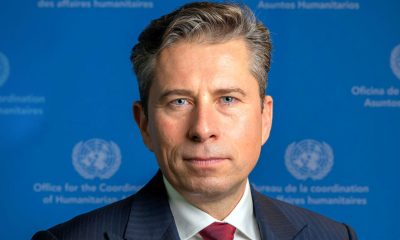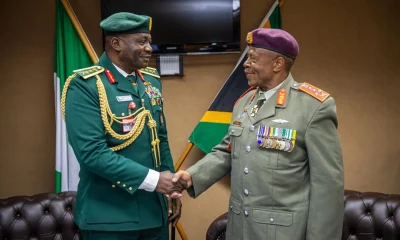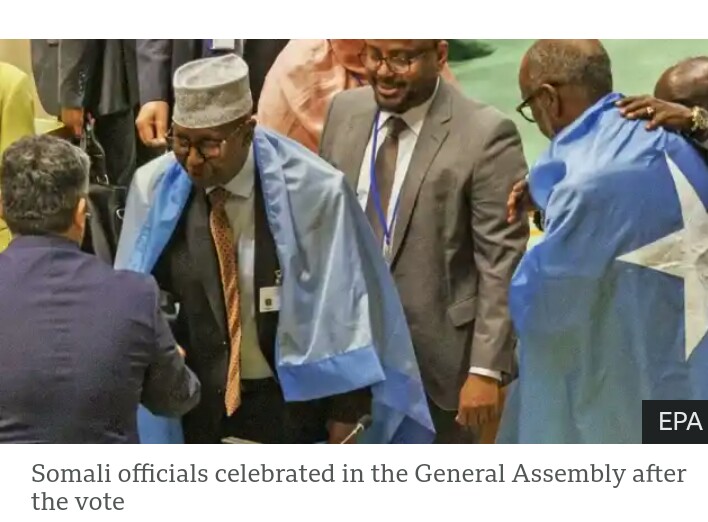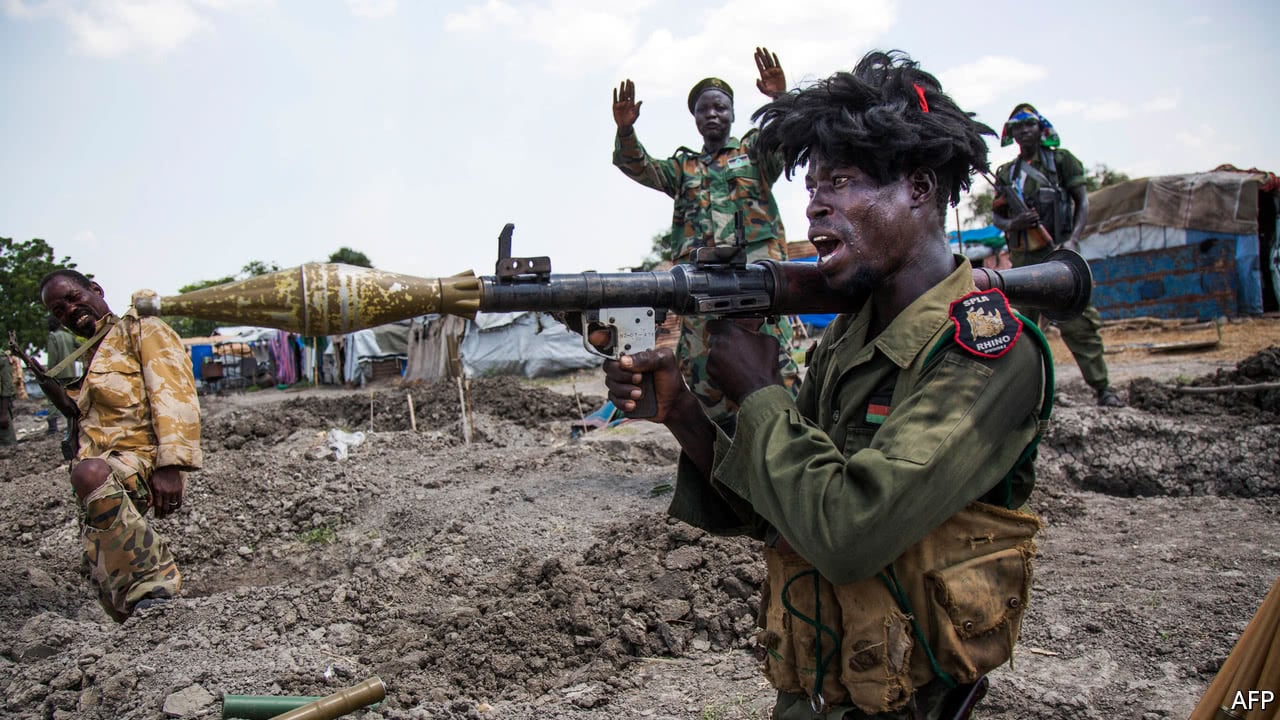Headlines
UN Chief Embarks on Moscow Trip Amid Criticism
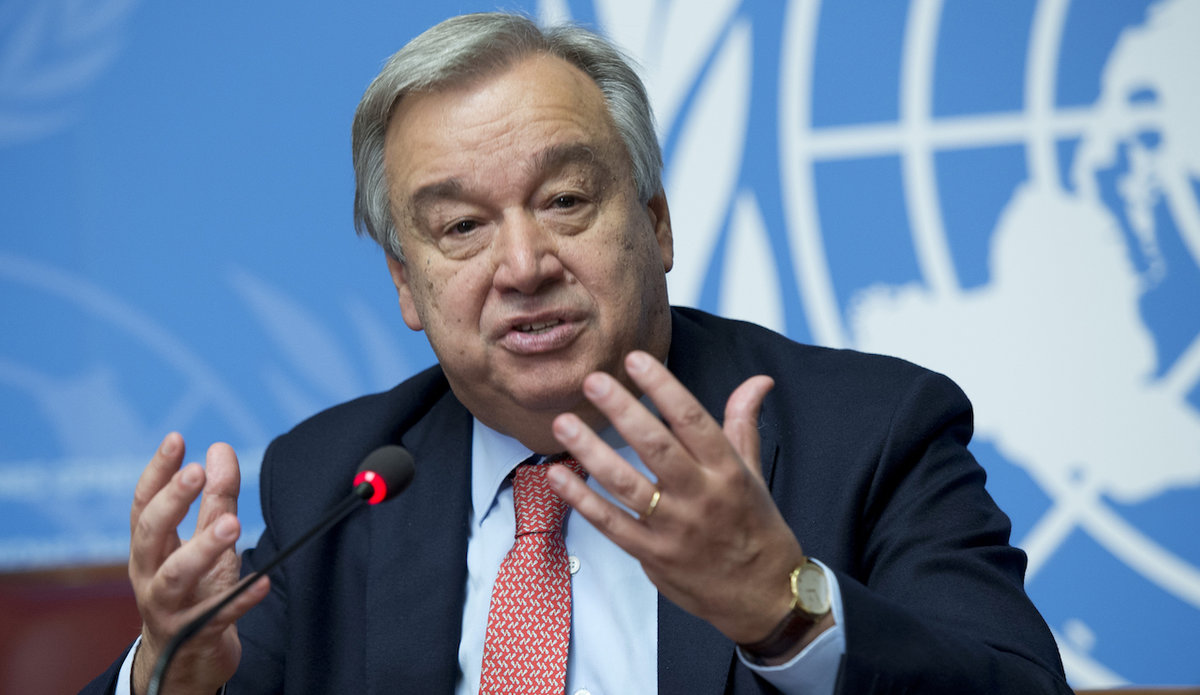
By Derrick Bangura
UN Secretary-General Antonio Guterres will start a difficult three-day trip to Russia and Ukraine on Tuesday amid criticism for the limited role played by the United Nations in the management of the crisis.
Three months into the Russian invasion of Ukraine, UN agencies are struggling to reach civilians under siege in the east of the country, where humanitarian assistance is sporadic.
Meanwhile the UN Security Council, where Russia is one of five permanent members with veto power, has failed to pass any resolutions condemning the war.
Guterres may want to use this trip to revitalise the UN initiative in the humanitarian field, experts said, while staying away from more controversial political questions.
“Guterres will try to provide a new momentum for the UN to play a role for humanitarian access in the evacuation of civilians, especially from Mariupol, and in a broader context to allow better access of UN and other humanitarian agencies to the conflict zones,” said Jean-Marc Rickli, head of Global and Emerging Risks at the Geneva Centre for Security Policy.
Guterres is due to meet in Moscow with Foreign Minister Sergey Lavrov and President Vladimir Putin. But the Secretary-General’s decision to kick off the first leg of his trip at the Kremlin has caused upset in Ukraine.
“From the outset this trip has started off on the wrong foot,” said Rickli. “In such a polarised environment where disinformation is so facilitated by social media, anything Guterres will do or say might be weaponised from one side or the other of the conflict.”
Last month, the UN’s refugee agency UNHCR came under fire by Ukrainian officials who accused it of being unprepared to address the humanitarian crisis. Similarly, the International Committee of the Red Cross (ICRC) was criticised for its alleged inaction and for visiting Russia. ICRC’s President Peter Maurer was in Moscow in a bid to negotiate access to the conflict areas.
lined diplomatically in the peace talks led by Turkey. Analysts said Guterres may wish to discuss the role the UN could provide in future peace talks with regard to UN infrastructure and services, especially in case of a future agreement where there could be peacekeeping forces deployed. Nevertheless, they agree it is premature to talk about peace.
“We should not expect any major breakthroughs out of this meeting, because the situation is not ripe for a compromise,” said Andrey Kortunov, the Director General of the Russian International Affairs Council.
UN weakness
Neither Russia nor Ukraine seem ready for serious negotiations.
Moscow has redeployed its forces to Ukraine’s east with the goal of the conquest and probable annexation of the Donbas region. Meanwhile, Ukraine has been emboldened by the success of its resistance movement since the Russians invaded on February 24.
“Mr Guterres is in a difficult position, because neither country is willing to hold peace talks,” said Rickli.
Meanwhile, Putin might want to use his meeting with Guterres to present Russia’s narrative on the invasion of Ukraine, which it has framed as a “special military operation” to the international community.
“He is likely to repeat his standard narrative about the roots of the conflict and he will try to justify his decisions,” Kortunov said.
“He might also complain about what he believes to be hypocrisy and double standards of the West.”
Putin and Guterres have very different views of the world and practice different leadership styles, Kortunov noted. Despite differences, however, Moscow has sanctioned Guterres’s election to the post, and the two men have good relations.
Last week, Guterres called for a ceasefire during Orthodox Easter that would allow for the safe passage of civilians from areas of current and expected confrontation in coordination with the ICRC. In addition, he called on the parties to allow for the delivery of life-saving aid to people in the hardest-hit areas such as Mariupol, the coastal city that has been besieged for weeks. His appeals were ignored.
Experts said the weakness of Guterres reflects the constraints of the structure he represents.
“In this environment for the UN to play a meaningful role in peacemaking is currently almost impossible. The UN’s weakness is a result of its very structure, notably the veto power of the permanent members of the UN Security Council which paralyses the organisation because of the ongoing polarisation between the West and the Russia-China axis.” Rickli said. Although China has called for peace talks, it has not condemned Russia’s actions in Ukraine.
ance in Ukraine, of whom more than one-third are in Mariupol, Kherson, Donetsk and Luhansk. The UN says this figure is due to increase to 15.7 million, about 40 per cent of all Ukrainians still left in the country, if the conflict continues.
Despite constraints on the ground, the UN says some 2.5 million people have been provided with assistance in the past seven weeks, including many in the east.
According to Shabia Mantoo, spokesperson at the UNHCR, about 4.9 million refugees have fled Ukraine since February 24. Bhanu Bhatnagar of the World Health Organization said the body has delivered 218 tonnes of emergency and medical supplies to Ukraine and roughly two-thirds of that, about 132 tonnes, have reached their intended destinations in the east and north of the country.
Jakob Kern, World Food Programme emergency coordinator for Ukraine, said Mariupol would probably need about two to three trucks a day of food alone. At the moment, the agency has been able to send in 10 trucks a month.
Headlines
Noble Ladies Champion Women’s Financial Independence at Grand Inauguration in Abuja

Women from diverse backgrounds across Nigeria and beyond gathered at the Art and Culture Auditorium, Abuja, for the inauguration and convention of the Noble Ladies Association. The event, led by the association’s Founder and “visionary and polished Queen Mother,” Mrs. Margaret Chigozie Mkpuma, was a colourful display of feminine elegance, empowerment, and ambition.
The highly anticipated gathering, attended by over 700 members and counting, reflected the association’s mission to help women realise their potential while shifting mindsets away from dependency and over-glamorization of the ‘white collar job.’ According to the group, progress can be better achieved through innovation and creativity. “When a woman is able to earn and blossom on her own she has no reason to look at herself as a second fiddle,” the association stated.
One of the association’s standout initiatives is its women-only investment platform, which currently offers a minimum entry of ₦100,000 with a return of ₦130,000 over 30 days—an interest rate of 30 percent. Some members invest as much as ₦1 million, enjoying the same return rate. Mrs. Mkpuma explained that the scheme focuses on women because “women bear the greater brunt of poverty” and the platform seeks “to offer equity in the absence of economic equality.”
Education is also central to the Noble Ladies’ mission, regardless of age. Their mantra, “start again from where you stopped,” encourages women to return to school or upgrade their skills at any stage in life. The association believes that financial stability is vital in protecting women from cultural practices that dispossess widows of their late husbands’ assets, while also enabling them to raise morally and socially grounded families.
Founded on the vision of enhancing women’s skills and achieving financial stability, the association rests on a value system that discourages pity and promotes purpose. “You have a purpose and you build on that purpose to achieve great potentials and emancipation,” Mrs. Mkpuma said.
A criminologist by training and entrepreneur by practice, she cautions against idleness while waiting for formal employment. “There are billions in the informal and non-formal sectors waiting to be made,” she said, rejecting the “new normal of begging” and urging people to “be more introspective to find their purpose in life and hold on to it.”
Mrs. Mkpuma’s management style keeps members actively engaged, focusing on vocational skills and training to prepare them for competitive markets. She is exploring “innovative integration of uncommon technologies” and is already in talks with international franchises to invest in Nigeria, with Noble Ladies as first beneficiaries.
The association’s core values include mutual respect, innovation, forward-thinking, equal opportunity, and financial emancipation. With plans underway to establish a secretariat in the heart of Abuja, the group aims to expand its impact.
The event drew high-profile guests, including former Inspector General of Police, Mike Okiro, and a host of VIPs, marking a significant milestone in the association’s drive for women’s empowerment.
Headlines
NEPZA, FCT agree to create world-class FTZ environment

The Nigeria Export Processing Zones Authority (NEPZA) has stepped in to resolve the dispute between the Federal Capital Territory Administration and the Abuja Technology Village (ATV), a licensed Free Trade Zone, over the potential revocation of the zone’s land title.
Dr. Olufemi Ogunyemi, the Managing Director of NEPZA, urged ATV operators and investors to withdraw the lawsuit filed against the FCT administration immediately to facilitate a roundtable negotiation.
Dr. Ogunyemi delivered the charge during a courtesy visit to the Minister of the Federal Capital Territory, Barrister Nyesom Wike, on Thursday in Abuja.
You will recall that the ATV operators responded to the revocation notice issued by the FCT administration with a lawsuit.
Dr. Ogunyemi stated that the continued support for the growth of the Free Trade Zones Scheme would benefit the nation’s economy and the FCT’s development, emphasizing that the FCT administration recognized the scheme’s potential to accelerate industrialisation.
Dr. Ogunyemi, also the Chief Executive Officer of NEPZA, expressed his delight at the steps taken by the FCT minister to expand the economic frontier of the FCT through the proposed Abuja City Walk (ACW) project.
Dr. Ogunyemi further explained that the Authority was preparing to assess all the 63 licensed Free Trade Zones across the country with the view to vetting their functionality and contributions to the nation’s Foreign Direct Investment and export drives.
“I have come to discuss with His Excellency, the Minister of the Federal Capital Territory on the importance of supporting the ATV to succeed while also promoting the development of the Abuja City Walk project. We must work together to achieve this for the good of our nation,” he said.
On his part, the FCT Minister reiterated his unflinching determination to work towards President Bola Ahmed Tinubu’s Renewed Hope Agenda by bringing FDI to the FCT.
“We must fulfil Mr. President’s promises regarding industrialization, trade, and investment. In this context, the FCT will collaborate with NEPZA to review the future of ATV, a zone that was sponsored and supported by the FCT administration,” Wike said.
Barrister Wike also said that efforts were underway to fast-track the industrialisation process of the territory with the construction of the Abuja City Walk.
The minister further said the Abuja City Walk project was planned to cover over 200 hectares in the Abuja Technology Village corridor along Airport Road.
According to him, the business ecosystem aimed to create a lively, mixed-use urban center with residential, commercial, retail, hospitality, medical, and institutional facilities.
He added that the ACW would turn out to be a high-definition and world-class project that would give this administration’s Renewed Hope Agenda true meaning in the North-Central Region of the country.
Barrister Wike also indicated his continued pursuit of land and property owners who failed to fulfil their obligations to the FCT in his determination to develop the territory.
Headlines
Benue IDPs block highway, demand return to ancestral homes

Vehicular movement along the Yelwata axis of the Benue–Nasarawa highway was brought to a standstill on Wednesday as Internally Displaced Persons, IDPs, staged a protest, demanding immediate return to their ancestral homes.
The protesters, believed to be victims of persistent attacks by suspected herdsmen, blocked both lanes of the busy highway for several hours, chanting “We want to go back home”.
The protest caused disruption, leaving hundreds of motorists and passengers stranded.
Eyewitnesses said the displaced persons, many of whom have spent years in overcrowded IDP camps, are expressing deep frustration over the government’s delay in restoring security to their communities.
“We have suffered enough. We want to return to our homes and farms,” one of the protesters told reporters at the scene.
Security personnel were reportedly deployed to monitor the situation and prevent any escalation, though tensions remained high as of press time.
Efforts to reach the Benue State Emergency Management Agency, SEMA, and other relevant authorities for comment were unsuccessful.
-

 Headlines4 years ago
Headlines4 years agoFacebook, Instagram Temporarily Allow Posts on Ukraine War Calling for Violence Against Invading Russians or Putin’s Death
-

 Headlines4 years ago
Headlines4 years agoNigeria, Other West African Countries Facing Worst Food Crisis in 10 Years, Aid Groups Say
-

 Foreign4 years ago
Foreign4 years agoNew York Consulate installs machines for 10-year passport
-

 News1 year ago
News1 year agoZero Trust Architecture in a Remote World: Securing the New Normal
-

 Entertainment3 years ago
Entertainment3 years agoPhyna emerges winner of Big Brother Naija Season 7
-

 Headlines2 years ago
Headlines2 years agoNigeria Customs modernisation project to check extortion of traders
-

 Entertainment2 years ago
Entertainment2 years agoMovie download platform, Netnaija, announces closure
-

 Economy2 years ago
Economy2 years agoWe generated N30.2 bn revenue in three months – Kano NCS Comptroller






